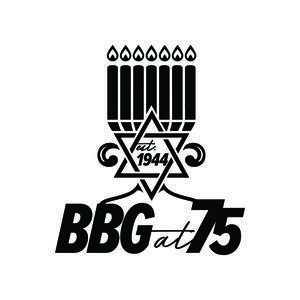Founding of the B'nai B'rith Girls (BBG)
In 1925, a prominent Jewish organization called B’nai B’rith adopted the Aleph Zadik Aleph as it auxiliary program for young men. Efforts began immediately to launch a program for Jewish young women that would serve as a sister to AZA in the B’nai B’rith family. Groups emerged as early as 1926 in Seattle, Washington, and 1927 in Newark, New Jersey. Unfortunately, these groups quickly dissolved.
However, the movement was not defeated. Efforts to create a sisterhood for Jewish young women continued. Rose Mauser organized the first permanent chapter of what is now the B’nai B’rith Girls in December of 1927 in San Francisco, California. Mattie Olcovich and Essie Solomon served as the first advisors. Unlike AZA, which began in Omaha in 1924 and then spread to become an international organization, chapters of girls sprung up throughout the United States and Canada in response to spontaneous local forces but without any central pattern of structure or policy and without professional supervision. “B’nai B’rith Girls” (BBG) was only one in a long list of names given to the early chapters. The age span of the members ranged anywhere from twelve into their 30s.
BBG chapter activities consisted mostly of programming that was modeled after the AZA “Five Fold and Full” program created by Dr. Boris D. Bogen in 1928. The emphasis was primarily on social gatherings and community service, with the inclusion of educational, religious, and recreational activities, as well.
Due to the lack of an organized uniform structure, some of the young women’s chapters also adopted national AZA observances. As regional and district association began to emerge, BBG’s programming also developed a broader base.
The development of the girls’ group was directly related to the strength of what was then called B’nai B’rith Women (BBW). BBG grew most quickly in the West, where B’nai B’rith Women was strongest. The women’s groups provided guidance and support to the developing girls’ groups. Use of the word “sister” was even adopted from the adult organization. Eventually, groups of B’nai B’rith Women around the country began sponsoring the junior groups by collecting dues from the girls for operation of their programs.
The appointment of Anita M. Perlman as Chairwoman of B’nai B’rith Girls was a major step in bringing structure to the loosely organized chapters. Though much dedication and hard work has gone into the building of the girls’ groups over a period of decades, no woman has put as much of herself into this work as Perlman. Within the first year of her appointment, and with a $600 budget, she was able to keep up correspondence with the leaders of BBW and BBG while developing invaluable program resources for the new group.
BBG was officially established as an international organization at a meeting held on April 22-23, 1944. A structure was defined at that time to include women from high school to the age of 25, but that system has shifted over time. The first ten BBG charters were issued at this time to San Francisco, CA, Oakland, CA, Los Angeles, CA (Linda Strauss), Harrisburg, PA, Highland Park, LA, Worcester, MA, Lancaster, PA, Chicago, IL (Ramah), Pottsville, PA, and Homestead, PA. The individual identities of BBG and AZA have always thrived within BBYO. Both are very strong entities that have been bringing amazing opportunities to their members, both independently and together.
For more information about the founding and history of AZA & BBG, please visit https://bbyo.org/aza-bbg/aza-and-bbg-history.




I discover that I have 13 (3 1/2" X 5") black and white photos from the 12th BBG National Convention. I hate to throw them out and hope that you might like to have them.
I was a member of Richman BBG 1962,1963 and interested in get information about the rRichman members at the time